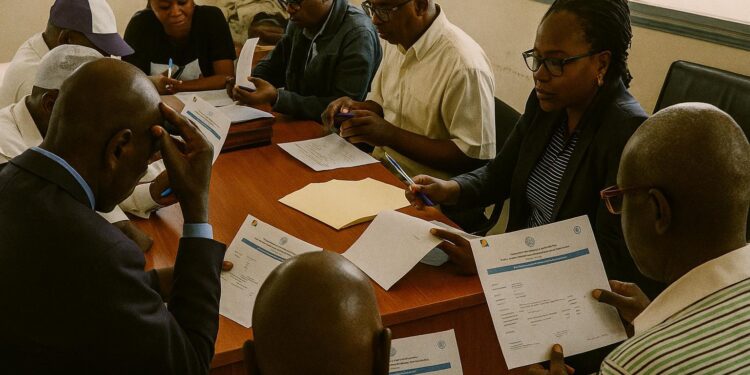Community Targeting Committees Anchor Grass-Roots Legitimacy
The methodical bustle observed this month in Brazzaville’s district halls signals a pivotal phase for the Support Project for Youth Integration and Productivity, better known by its French acronym PSIPJ. Community Targeting Committees, purposely formed to reflect neighbourhood diversity, are poring over thousands of files to validate the names of young Congolese judged most vulnerable yet most capable of translating fresh opportunity into productive enterprise. Their deliberations, which began on 9 July, constitute the first institutional filter in an ambitious pipeline that will ultimately reach 40,000 beneficiaries across the Republic of Congo. By rooting eligibility decisions in local knowledge, authorities hope to pre-empt accusations of favouritism and to foster ownership at the street level.
Youth Vulnerability in Congo’s Urban Conurbations
The stakes are high. According to recent labour-market diagnostics by the World Bank and the African Development Bank, nearly one Congolese under thirty out of two is under-employed, a proportion that surges in peri-urban areas affected by rapid demographic growth. School dropout, informal migration from rural hinterlands and the lingering impact of commodity price volatility have compounded to create pockets of frustration easily exploitable by criminal networks. Government officials privately concede that economic inclusion is now a matter of national security as much as social policy. Against this backdrop, the PSIPJ has been framed as a flagship response capable of converting a potential demographic liability into a strategic dividend.
Component 6.1: From Civic Training to Seed Capital
The project architecture is deliberately sequential. Once confirmed by the committees, each youngster will enrol in a short, mandatory module on civic responsibility and basic financial literacy before moving to structured entrepreneurship coaching. The training curricula, designed with input from the Chamber of Commerce and several regional universities, emphasise market analysis, bookkeeping and digital marketing. Upon satisfactory completion, participants receive tailored technical assistance and a modest start-up grant designed to crowd-in additional micro-finance. PSIPJ managers stress that the cash component functions not as charity but as catalytic capital intended to propel viable micro-projects in agribusiness, green construction and services.
World Bank Partnership and Fiscal Prudence
Financed through a concessional credit of 45 million dollars and a counterpart contribution from the national budget, the PSIPJ aligns with the World Bank’s 2023–2027 Country Partnership Framework, which prioritises human-capital accumulation and private-sector dynamism. Officials in the Ministry of Planning argue that external scrutiny embedded in Bank procedures strengthens fiduciary discipline at a time when public finances remain exposed to oil-price fluctuations. A senior economist in the Bank’s Brazzaville office notes that disbursement triggers are linked to measurable milestones, including the share of female beneficiaries and the survival rate of start-ups after twelve months. Such conditionality, he insists, is designed to entrench a culture of evidence-based policymaking.
Local Stakeholders Voice Cautious Optimism
Grass-roots actors interviewed in Djiri and Pointe-Noire relay a mixture of enthusiasm and prudent realism. “Our neighbourhood has talent; what we lacked was connective tissue to markets,” explains Florent Malonga Moussa, coordinator of district chiefs in Brazzaville’s ninth arrondissement. Bernicia Massimina, PSIPJ’s financial officer, adds that demand has exceeded projections, with more than 60,000 expressions of interest filed during the pre-registration window. Civil-society observers nevertheless remind organisers that past youth programs faltered when mentoring dissipated after the first tranche of funding. In response, the new scheme foresees quarterly check-ins and a digital dashboard accessible to both municipal authorities and the beneficiaries themselves.
Governance Safeguards and Transparency Mechanisms
Political economists describe the committee model as a subtle attempt to blend customary legitimacy with modern accountability. Representatives are elected during open assemblies, their proceedings recorded, and validation lists posted on community billboards. The Ministry of Youth has set up a toll-free line for grievances, and the World Bank will conduct random audits. Such measures resonate with the broader public-administration reform agenda launched by President Denis Sassou Nguesso, which seeks to consolidate trust between citizens and state institutions while improving public-service delivery.
Prospects for Inclusive Growth and Regional Stability
If implemented as designed, the PSIPJ could alter the economic geography of Congo-Brazzaville’s largest cities by seeding micro-enterprises in logistics, recycling and agri-processing, sectors that align with the government’s diversification blueprint. Analysts at the Economic Commission for Africa estimate that every new formal job created for a young adult generates up to 1.7 indirect jobs, a multiplier effect that could ripple through informal supply chains. Beyond domestic dividends, a successful rollout would reinforce the country’s reputation as a reliable partner in Central Africa’s stability architecture, demonstrating that calibrated social investment can stem migratory pressures and buttress peace. For now, the quiet revolution unfolding in community halls offers a compelling, cautiously hopeful narrative of state-society synergy.












































